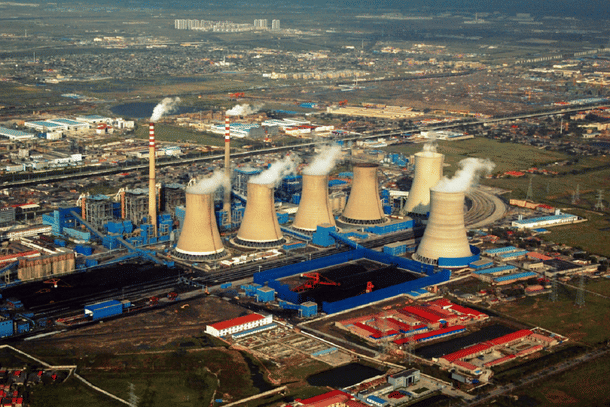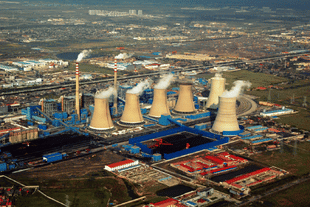Analysis
Global South Faces Trade Disruption: Green Industrial Policies Of Major Economies Raise Alarms
Sohom Bhowmick
Apr 17, 2024, 05:34 PM | Updated Apr 19, 2024, 12:33 PM IST
Save & read from anywhere!
Bookmark stories for easy access on any device or the Swarajya app.


The rise of green industrial policies by major economies poses a significant disruptive threat to international trade flows and economic prospects for developing countries in the global south.
Measures like the US Inflation Reduction Act (IRA) and the European Union's Green Deal industrial plan aim to turbocharge domestic manufacturing of clean energy technologies. These proposed and implemented regulations use multiple policy tools like large subsidies, tax credits and requirements that these products be sourced from domestic suppliers.
After having preached to the world that industrial policy distorted fair competition in a globalised world order, the return of these industrial policy instruments shows that in the developed world, economic and political interests trump economic orthodoxy any day.
They claim that such measures are crucial in meeting their climate goals; however, these protectionist policies most likely violate the longstanding World Trade Organization rules on equal treatment of foreign firms and products.
For emerging market and developing economies, the potential impacts could be severe and wide-ranging. The IRA alone is expected to exert a powerful "pull" effect, diverting billions of dollars in new clean energy investment away from the global south and toward the US market, chasing its generous green subsidies.
The EU's policies threaten a similar investment diversion from developing countries. These policies put pressure on other developing countries too. The United Kingdom and Australia are also considering their own equivalent measures.
Unable to compete in an escalating green subsidy “arms race”, poorer nations may resort to actively limiting imports of clean technologies as well as clamping down on exports of critical mineral resources needed for batteries, solar panels, and other key components.
While the rich countries use subsidies with impunity, they also deride the use of tariff and non-tariff barriers by the developing countries, creating a double disadvantage for those seeking to participate in the fourth wave of industrialisation.
This vicelike grip on the international rulemaking, narrative power backed by beggar-thy-neighbour policies essentially create "walled green gardens" that impede vital diffusion of low-cost clean energy breakthroughs across developing countries.
Adding fuel to the fire, developed economies are pushing ahead with controversial carbon border taxes like the EU's and United Kingdom’s Carbon Border Adjustment Mechanism (CBAM) that would impose tariffs on emissions-intensive imports from nations lacking comparable domestic carbon pricing schemes.
These schemes seek to prevent carbon leakage but instead of measuring absolute or relative emissions and using them as the basis, they seek to use explicit use or otherwise of carbon pricing when determining applicable taxes on imported products.
Effectively, they force the policy choice of carbon pricing on third countries, irrespective of their progress on nationally determined carbon emissions reduction goals.
The US is considering similar penalties under initiatives like the Global Arrangement on Sustainable Steel and Aluminium (GASSA). The US essentially seeks to create an exclusive club of “approved partners”, seeking to exclude the import of steel and aluminium from developing countries in the name of managing emissions.
These ideas have already provoked outrage from the global south, where there are fervent calls for increased climate financing from rich nations rather than punitive trade measures. Pitched battles are being fought in the World Trade Organization month after month, but the developed countries are far from relenting.
If such green protectionism continues unabated, the world risks spiralling into a "vicious cycle" of tit-for-tat retaliation, fragmented global markets for clean tech, and a dramatically decelerated path for decarbonisation and climate progress.
A worst-case scenario could involve a barrage of international trade disputes at the WTO's doorstep and an imposition of punitive tariffs across key sectors that collectively raise trade costs and slow investment.
To forge a better path, the world's leading economies must work toward establishing new "guardrails" to rein in protectionist excesses while still allowing critical policy flexibility to nurture domestic clean tech industries.
The WTO rulebook — written to curb industrial policy action, rather than to facilitate new ideas — has proven incapable of generating policy coherence. Even simple ideas like the developing economies demanding transfer of green technology intellectual property from the developed countries have been blocked by the commercial interests which drive WTO conduct.
With global climate action still woefully insufficient, major players must avoid protectionism and instead focus on diversifying supply chains, building resilience, and fostering international cooperation for achieving climate outcomes.
Healthy economic competition and climate goals have to go hand in hand and it needs those who have used the historic carbon stock to assume greater responsibility in making the planet future-ready.
Finding this balance — avoiding a vicious spiral of trade warfare, which penalises developing countries without necessarily driving environmental outcomes — may be the key challenge of our era. How it is navigated will shape both the world's climate trajectory and future prosperity for billions in the global south.
Sohom Bhowmick is the Director of Policy at the Smahi Foundation of Policy and Research. He used to work for the World Trade Organization before this.





